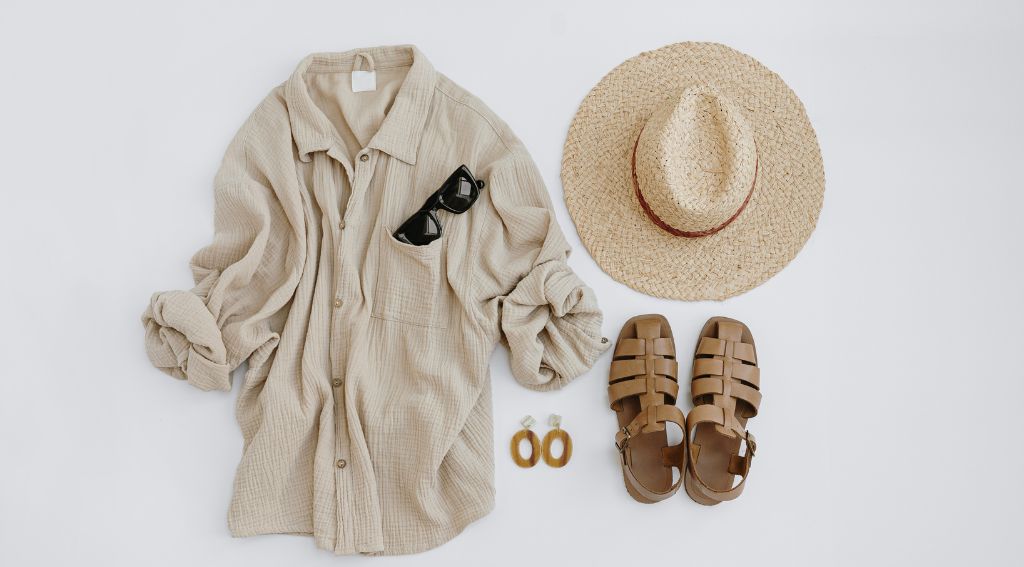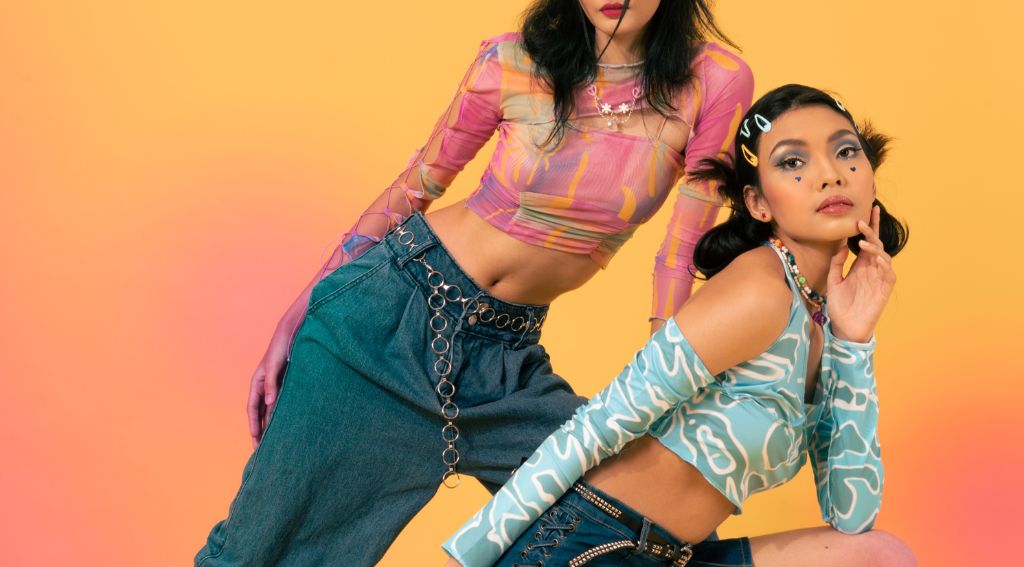If you’re wondering “Is Romwe ethical” or just another fast fashion brand, this one is for you! In this article, we’ll discuss exactly how sustainable Romwe is and also go over Romwe’s environmental impact. So, let’s get into it.
Is Romwe Fast Fashion?
Romwe, the ar Chinese e-commerce ultra-fast fashion brand that constantly churns out “trendy”, cheap clothes, has become a sensation worldwide, thanks to its viral presence on TikTok and Instagram. But here’s the big question: Is Romwe sustainable? The answer is. obviously, a resounding NO! While their ridiculously cheap garments may seem like a steal at first glance, the truth behind the scenes is troubling, to say the least. Just like Shein, most of Romwe’s clothing, priced under $10, is made from toxic synthetic fabrics and produced in sweatshops where people of all ages are forced to work in unsafe and downright harmful conditions.
What is Romwe?
Back in 2010, April Xie Yun founded Romwe. With a laser focus on serving the trendy youth of Western countries, Romwe quickly gained popularity with its chic, high-fashion clothing and accessories offered at jaw-dropping, budget-friendly prices. The brand’s mission was clear: to make fashion accessible to all without breaking the bank.
The year 2012 marked a significant milestone for Romwe, as it embarked on its international journey by launching in France. From there, it didn’t hold back, expanding its presence to delight fashion enthusiasts in Spain, Germany,, United Arab Emirates,, and the United States.
Unsurprisingly, in 2014, Romwe’s success caught the attention of Shein, leading to an acquisition that would shape the future of both fast-fashion brands. Today, Romwe and Shein stand as sister brands, both under the ownership of China’s prominent Nanjing Lingtian Information Technology Co.
Is Romwe Ethical?

The Romwe fast fashion business model is not ethical. When it comes to ethical practices, Romwe’s claims have left many skeptical. With its products manufactured in China, a country known for labor abuse and human rights violations, concerns arise about the brand’s commitment to ethical sourcing. The absence of a clear and stringent code of conduct for suppliers and subcontractors, along with the lack of transparency regarding factories and selection criteria, raises eyebrows.
Despite Romwe’s pledge to be deeply dedicated to ethical and humane production, the evidence remains elusive. A brief paragraph promising high manufacturing standards and signed agreements with suppliers is not enough to assure consumers that the brand is actively practicing what it preaches. Without concrete information about audits, fair trade practices, safe working conditions, and fair wages, Romwe’s claims leave room for doubt.
Is Romwe more ethical than Shein?
Both brands are owned by the same parent company, so NO, Romwe is not more ethical than Shein. Both brands have faced scrutiny for their lack of transparency regarding the factories and suppliers they work with. Without clear information about their supply chain, it becomes challenging to assess the labor conditions and environmental practices involved in production. Both brands offer extremely affordable prices, which can encourage overconsumption and a throwaway culture. Fast fashion’s business model, built on rapid production and low-cost items, can contribute to excessive waste and environmental damage.
Is Romwe Sustainable?
No doubt about it, Romwe falls far short in the sustainability department. The brand’s fast-paced production of hundreds of new styles every week encourages excessive consumerism, contributing to the issue of overconsumption in the fashion industry. To make matters worse, Romwe incorporates cheap and unsustainable fabrics like virgin polyester, nylon, acrylic, and conventional cotton into its clothing range. These materials are not only harmful to the environment but also pose a serious threat due to their non-biodegradable nature and heavy reliance on petroleum resources.
Adding to its unsustainable practices, Romwe’s clothing contains animal-derived materials sourced from unknown and unethical suppliers. Raising animals for their skin and fur further increases carbon emissions and waste, contributing to environmental degradation. Moreover, the prevalent “throw-away” culture promoted by the fast fashion industry means that many of Romwe’s garments are discarded within a few months, ending up in overflowing landfills.
To make matters worse, Romwe compounds its sustainability problems by packaging its products in plastic, adding unnecessary waste to an already unsustainable business model.
The environmental impact of Romwe
It’s no secret that Romwe relies on cheap, synthetic fibers. The production of synthetic fibers emits alarming levels of greenhouse gases, exacerbating the global climate crisis. In fact, The fashion industry accounts for about 10% of global greenhouse gas emissions, which is more than the emissions of international flights and maritime shipping combined, according to the UN Environment Programme.
These fibers are then dyed with even more harmful chemicals. As World Bank pointed out, the textile dyeing and treatment processes are responsible for 20% of industrial water pollution globally. Harmful chemicals, including lead, mercury, and arsenic, are often released into water bodies, affecting aquatic life and water quality.
Then, there’s the issue of overconsumption. The fashion industry generates an estimated 92 million tons of textile waste each year. Much of this waste ends up in landfills, where textiles can take hundreds of years to decompose. On top of that, It is estimated that up to 35% of microplastics in the ocean come from synthetic textiles
Despite the potential for change, Romwe does not seem eager to reduce its carbon footprint significantly. While it does use some low-impact materials like organic cotton, recycled polyester, and regenerated nylon, these sustainable fabrics represent only a tiny fraction of its vast collection of garments made from harmful materials.
Does Romwe support child labor?
When it comes to transparency in its supply chain, Romwe’s claims have left many questions unanswered. While the brand states that it does not engage in forced or child labor, it has been remarkably discreet about its production units. The lack of information on its website regarding factories and supply chain conditions raises concerns among consumers.
As a Chinese retailer, Romwe sources its products from local factories, but beyond that, details are scarce. China’s reputation as a country with human rights concerns adds to the uncertainty about the working conditions in these facilities. Without concrete information on the factories it partners with and their labor practices, it’s challenging for consumers to know if the brand’s products are truly ethically produced.
Sustainable, Ethical Alternatives to Romwe
1. Kotn
Price: $12 – $475
Sustainable Materials: Egyptian cotton
With a laser focus on Egyptian cotton, which grows only in the stunning Nile Delta, KOTN stands out as a true pioneer. While much of the world opts for cheaper alternatives, KOTN takes a different path, working directly with cotton farming families to revolutionize the industry from within. It’s like farm-to-table but for your clothes! By cutting out the middleman, KOTN can pay the hardworking farmers fair wages while still offering you incredibly affordable prices.
2. Tentree
Price: $20-$80
Sustainable Materials: Recycled Polyester, TENCEL Lyocell, Organic Cotton, Hemp
Tentree, an amazing sustainable brand that celebrates the spirit of the outdoors without being confined by it. Inspired by the wonders of nature, this incredible brand takes on a monumental responsibility – to protect and preserve our precious planet. And boy, do they deliver! For every item they sell, they plant not just one, but TEN trees. Yes, you read that right – they’re on a mission to plant 1 billion trees by 2030, and that’s billions with a B!

3.Amour Vert
Price: From $90
Sustainable Materials: Vegan silk, rescued materials, and upcycled fabrics
Amour Vert is a beloved slow fashion brand that combines ethics and affordability to bring you stylish, lightweight, and comfy jumpsuits for every season. Their timeless pieces are designed to stay in your wardrobe forever, reducing the need for constant replacements and curbing fashion waste. This eco-friendly label has been actively planting trees in North America through its partnership with American Forest since day one. So, not only are you dressing stylishly, but you’re also leaving a positive environmental impact with every purchase.

Conclusion: Is Romwe Ethical, Sustainable, or Fast Fashion?
So, is Romwe ethical and sustainable? – absolutely not. Is Romwe fast fashion? – Yes! As consumers, it’s essential to support brands that go beyond mere promises and provide concrete evidence of their commitment to ethical production. So, when it comes to choosing fashion that makes a positive impact, it’s essential to dig deeper and make informed decisions that reflect our values.

About Author
Konstantina Antoniadou
Freelance sustainability and fashion writer with an ongoing curiosity to explore new innovative technologies, and report on trends in “green” industries.

